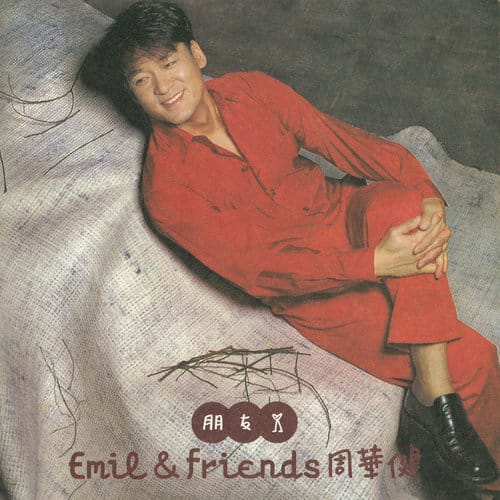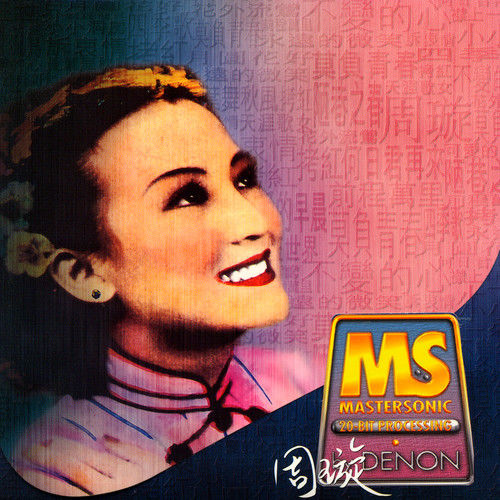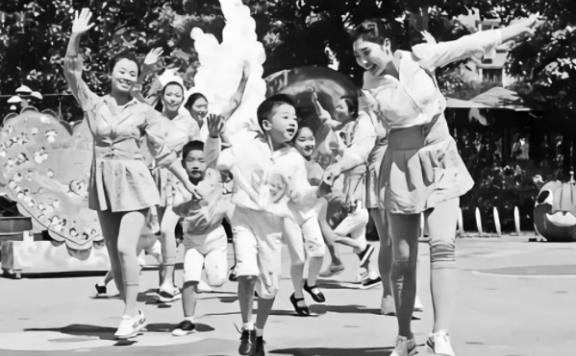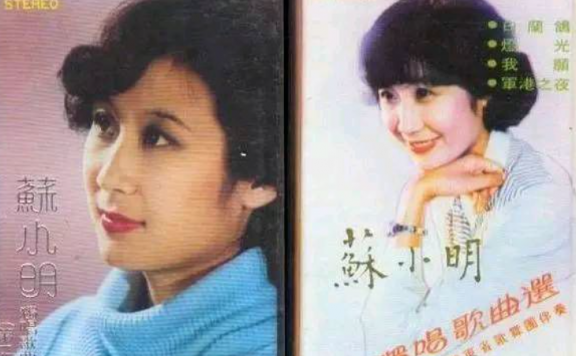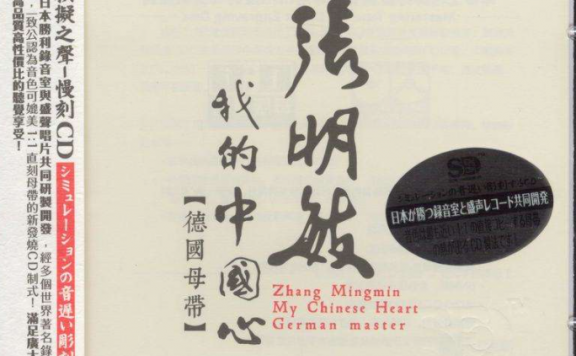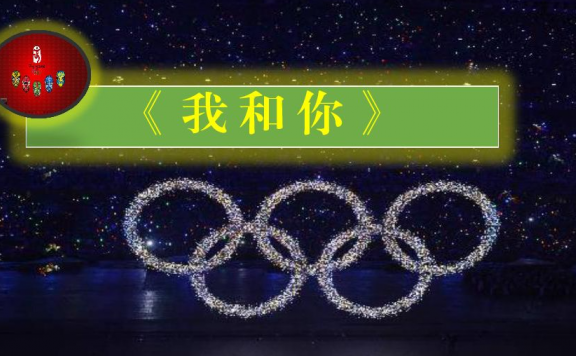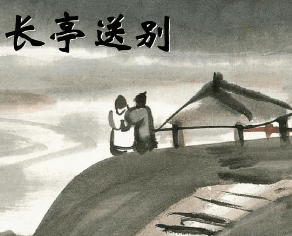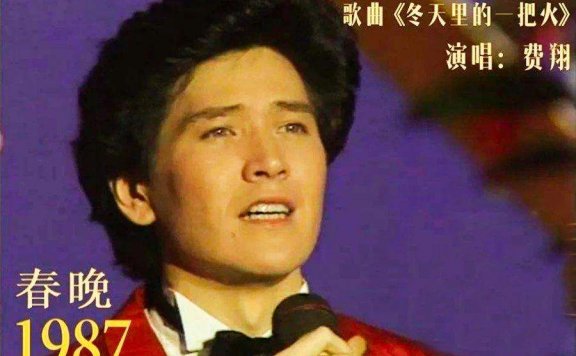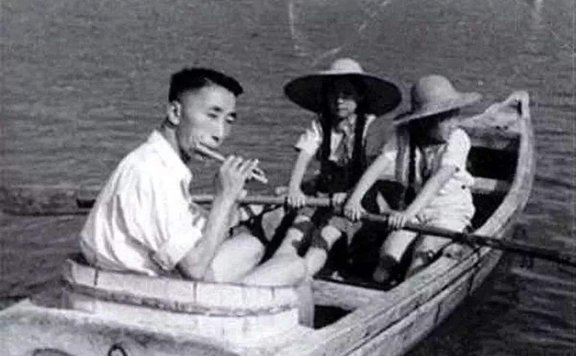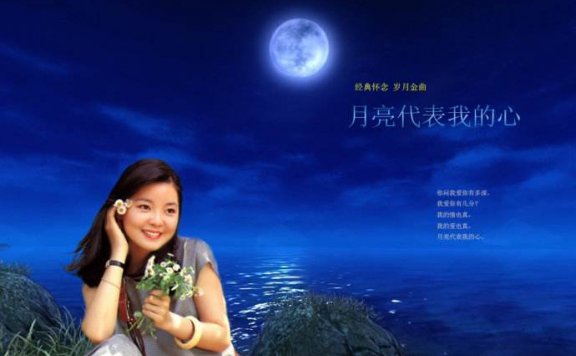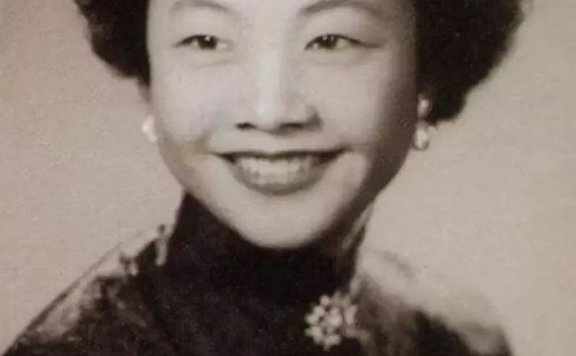Unforgetable Tonight 难忘今宵
A song that never misses the Spring Festival Gala Overview Chinese Name: 难忘今宵 English Name: Unforgetable Tonight, Nan Wang Jin Xiao Composer: Wang Ming 王酩 Lyricist: Qiao Yu 乔羽 Original Singer: Li Guyi 李谷一 The notion of Unforgetable Tonight 难忘今宵 Unforgetable Tonight is a song written by Qiao Yu 乔羽, composed by Wang Min 王酩 and sung by Li Guyi 李谷一. Story Of Unforgetable Tonight The annual Spring Festival Gala shows are refreshing. However, there is one show that has been on the Spring Festival Gala stage for many years in a row. So far, it has been on the stage 15 times, and almost every time it is the finale. For many viewers, the Spring Festival Gala would not be complete without Li Guyi singing Unforgetable Tonight. In 1984, Huang Yihe 黄一鹤, the chief director of the CCTV Spring Festival Gala, felt that there was a lack of a song that matched the entire program. So Huang Yihe found the lyricist Qiao Yu, hoping that he could write the lyrics for the ending song of the Spring Festival Gala of the Year of the Rat. Qiao Yu fully reflected the theme thought by Huang Yihe in the lyrics. After…The Wandering Songstress 天涯歌女
A miserable poignant story of the singer's life and the lyrics Overview Chinese Name: 天涯歌女English Name: The Wandering Songstress, Tian Ya Ge NvComposer: He Luting 贺绿汀Lyricist: Tian Han 田汉Singer: Zhou Xuan 周璇 The notation of Wandering Songstress The Wandering Songstress 天涯歌女 is a song sung by Zhou Xuan 周璇, written by Tian Han 田汉, and adapted by He Luting 贺绿汀 according to the Suzhou 苏州 folk minor. It is an episode of the movie Street Angel 马路天使. Composition Story Of The Wandering Songstress Zhou Xuan was a well-known "golden voice" in Shanghai in the 1930s and 1940s, and one of the earliest Chinese singers and actresses. In 1937, the drama Street Angel starring Zhou Xuan became the representative work of her acting career. Among them, she sang The Wandering Songstress for the film, which has been sung to this day. Wandering Songstress 天涯歌女 It is no exaggeration to say that in those days, Zhou Xuan's songs were playing all over Shanghai. Zhou Xuan's songs not only influenced Shanghai at that time but also provided countless cover materials for Hong Kong and Taiwan singers such as Teresa Teng 邓丽君 and Anita Mui 梅艳芳 decades later. The sound memory of Chinese films…Song and Smile 歌声与微笑
A nursery rhyme that conveys friendship and never goes out of style Overview Chinese Name: 歌声与微笑English Name: Song and Smile, Ge Sheng Yu Wei XiaoComposer: Wang Jian 王健Lyricist: Gu Jianfen 谷建芬Release Date: 1986 The notion of Song and Smile Song and Smile 歌声与微笑 is a lively, upbeat and catchy children's song written by Gu Jianfen 谷建芬 and lyrics by Wang Jian 王健. This is a catchy children's song that is loved by the majority of teenagers and children, and it is a good memory shared by generations. Story Of Song and Smile Gu Jianfen is a famous contemporary female composer. Her ancestral home is Weihai 威海 City, Shandong Province, and she was born in Osaka, Japan. Ever since Xiaogu Jianfen had a hazy feeling, she felt that the things that singing brought her were so beautiful, and sometimes she felt that the singing brought her an indescribable sadness, and music seemed to be indispensable in her life. After graduating in the 1950s, she has created nearly 1,000 works. Wang Jian, born in Beijing, is a famous Chinese female lyricist. She began publishing short essays and short poems in 1947. In 1948, she graduated from the Music Department of Hebei Normal…Listening To Mum Telling The Past 听妈妈讲那过去的事情
Excellent work that has inspired generations of children Overview Chinese Name: 听妈妈讲那过去的事情English Name: Listening To Mum Telling The Past, Ting Ma Ma Jiang Na Guo Qu De Shi QingComposer: Qu Xixian 瞿希贤Lyricist: Guan Hua 管桦Release Date: 1958 The notion of Listening To Mum Telling The Past Listening To Mum Telling The Past is a narrative children's song written by Guan Hua 管桦, composed by Qu Xixian 瞿希贤, and first sung by the Children's Choir of the Central People's Broadcasting Station 中央少年广播合唱团. Story Of Listening To Mum Telling The Past Released in 1958, Listening To Mum Telling The Past is a lyrical children's narrative song and excellent work that has been sung by generations for a long time. The lyrics are beautiful, with poetic language, and the description of the scene blending, giving people a beautiful influence. The whole song is delicate and sincere, showing that the mother, as a working person at the bottom, has gone through hardships in the old society before looking forward to the new society. Listening To Mum Telling The Past After the founding of the PRC, the new China would have the task of rebuilding. To let the children who will devote themselves to socialist…The Tibetan Plateau 青藏高原
The pure heaven and the sounds of nature on the plateau Overview Chinese Name: 青藏高原English Name: The Tibetan Plateau, Qing Zang Gao YuanComposer: Zhang Qianyi 张千一Lyricist: Zhang Qianyi 张千一Original Singer: Li Na 李娜 Original Singer Li Na 李娜 The Tibetan Plateau 青藏高原 is a song written and composed by Zhang Qianyi 张千一 and sung by soprano Li Na 李娜. It is the opening song of the 1994 TV series "Tianlu 天路", which was included in the music album "The Tibetan Plateau" released by Li Na in 1998. Story Of The Tibetan Plateau At the end of 1994, the crew of the TV series "Tianlu" invited Zhang Qianyi to compose music for the title. This TV series depicts the construction of the Qinghai-Tibet Highway by our army in Tibet, showing the great contribution of the People's Liberation Army to the unity of the Tibetan and Han nationalities. After reading the script and video materials, Zhang Qianyi was moved and accepted the invitation solemnly. Tianlu 天路 Zhang Qianyi wrote the lyrics of The Tibetan Plateau at random, and asked the screenwriter and director to tell the lyricist to grasp the connotation of the lyrics in this way, but the director decided to…Guests From Afar You Stay 远方的客人请你留下来
A song used by hospitable Chinese to welcome guests Overview Chinese Name: 远方的客人请你留下来English Name: Guests From Afar You Stay, Yuan Fang De Ke Ren Qing Ni Liu Xia LaiComposer: Mai Ding 麦丁Lyricist: Fan Yu 范禹Release Date: 1953 The Yi people 彝族 Guests From Afar You Stay was co-composed by Fan Yu 范禹 and songwriter Mai Ding 麦丁 in 1953. The inspiration for this song came from the warm and simple ethnic compatriots of the Yi people 彝族 in Yunnan 云南. Story Of Guests From Afar You Stay In 1953, Fan Yu came to a village in Yunnan Province to experience rural life. During the day, they help farmers thresh wheat, herd cattle, and collect folk songs at night. The youths who lived nearby sang with Fan Yu in pairs at night. Fan Yu 范禹 He decided to write a song to celebrate the beauty of Sani 撒尼. One day, Fan Yu, who was lying on the wheat stack, saw a person walking by on a winding path in front of him, and suddenly found inspiration. So, in just over 30 minutes, he created the lyrics. These simple, cordial, and sincere lyrics inspired composer Mai Ding's creative inspiration. He set the…Beautiful Prairie is My Home 美丽的草原我的家
A song that reminds people of the vast Prairie scenery Overview Chinese Name: 美丽的草原我的家English Name: Beautiful Prairie is My Home, Mei Li De Cao Yuan Wo De JiaComposer: Alatanole 阿拉腾奥勒Japanese Adaptor: Huohua 火华Singer: Dedema 德德玛 The notation of Beautiful Prairie is My Home Beautiful Prairie is My Home is a song written by Huohua 火华, composed by Alatanole 阿拉腾奥勒, and sung by Dedema 德德玛. The song was composed in 1978. Story Of Beautiful Prairie is My Home When it comes to Inner Mongolia 内蒙古, many people can't help but think of the song Beautiful Prairie is My Home. As soon as people hear the beautiful melody of Beautiful Prairie is My Home, everyone can't help but think of Inner Mongolia. In the 1970s, Beautiful Prairie is My Home, written by Huohua and composed by Alatengole, was born, and became popular in China after being sung by Dedema, a soloist of the Inner Mongolia Song and Dance Troupe. Huohua (the left) and Alatanole In 1977, when composing lyrics for participating in a cultural performance, Huohua remembered the past of experiencing life in Inner Mongolia, and he wrote the first draft of the lyrics of Beautiful Prairie is My Home. Because it…The Night Of Naval Port 军港之夜
A famous song about the life of the People's Navy in the 1980s Overview Chinese Name: 军港之夜English Name: The Night Of Naval Port, Jun Gang Zhi YeComposer: Liu Shizhao 刘诗召Lyricist: Ma Jinxing 马金星Original Singer: Su Xiaoming 苏小明 The album of The Night Of Naval Port The Night Of Naval Port is a song written by Ma Jinxing 马金星, composed by Liu Shizhao 刘诗召 and sung by Su Xiaoming 苏小明. The song was composed in 1980. Story Of The Night Of Naval Port She became famous with the song The Night Of Naval Port, and she dominated for a long time, becoming an idol in the Chinese music circle, thus making her one of the pioneers in the development of singing popular songs in mainland China. Su Xiaoming, who quickly swept the music scene in the 1980s. The Night Of Naval Port In 1979, the Capital Gymnasium 首都体育馆 held a grand concert. Su Xiaoming, who was originally a chorus performer, needed to perform solo for the first time in front of nearly 20,000 audiences. Because she was young, she was inexperienced, excited and nervous, so she didn't dare to go on stage because of her inexperience. An old comrade in the…My Chinese Heart 我的中国心
The surging Chinese heart sings the voice of the global Chinese. Overview Chinese Name: 我的中国心English Name: My Chinese Heart, Wo De Zhong Guo XinComposer: Wang Fuling 王福龄Lyricist: Huang Zhan 黄霑Original Singer: Zhang Mingmin 张明敏 the album of My Chinese Heart My Chinese Heart is a Mandarin song published by Zhang Mingmin 张明敏 in 1983. It was composed by Wang Fuling 王福龄 and written by Huang Zhan 黄霑. It is included in the album "My Chinese Heart". Story Of My Chinese Heart In 1982, Japan tampered with the history of Japan's invasion of China during World War II in its textbooks for primary and secondary schools, which made countless Chinese angry. Famous Hong Kong lyricist Huang Zhan was also indignant with it, and immediately picked up the pen and wrote the lyrics: "Western-style clothes on my body, My heart is still Chinese." The whole lyrics were completed in a few minutes. Huang Zhan黄霑 Huang Zhan brought the lyrics he created to the popular Hong Kong singers, but they were not taken seriously, because the song did not match the mainstream music in Hong Kong at that time, and secondly, they could not sing Mandarin well. Finally, Huang Zhan found a technician…Dedication of Love 爱的奉献
A song filled with the most beautiful warmth in the world Overview Chinese Name: 爱的奉献English Name: Dedication of Love, Ai De Feng XianComposer: Liu Shizhao 刘诗召Lyricist: Huang Qishi 黄奇石Singer: Wei Wei 韦唯 The album of Dedication of Love Dedication of Love 爱的奉献 is a song sung by Wei Wei 韦唯, written by Huang Qishi 黄奇石 and composed by Liu Shizhao 刘诗召. Included in Wei Wei's 1989 album Endless Love. In 1989, Wei Wei sang this song at the CCTV Spring Festival Gala. Story Of Dedication of Love In 1988, Liu Ruiqin 刘瑞琴, director of CCTV's literary and art department, invited some songwriters such as Huang Qishi and Liu Shizhao to make ending songs for those touching stories in a TV column. Huang Qishi read a story about a middle school student who suffered from severe kidney disease and needed surgery, but the middle school student's family couldn't afford the surgery. After the student's classmates found out, the whole school donated to him. After the incident was reported by the "Beijing Evening News", it aroused extensive participation from all walks of life. Everyone has a common wish: hope that the child's illness can be cured as soon as possible. Spread your…You And Me 我和你
The theme song for the opening ceremony of the 2008 Beijing Olympic Games Overview Chinese Name: 我和你English Name: You And Me, Wo He NiComposer: Chen Qigang 陈其钢Lyricist: Chang Shilei 常石磊 Ma Wen 马文 Chen Qigang 陈其钢Original Singer: Liu Huan 刘欢 Sarah Brightman You And Me You And Me is the theme song for the opening ceremony of the 2008 Beijing Olympic Games. It was composed by Chang Shilei 常石磊, Ma Wen 马文, and Chen Qigang 陈其钢, with music by Chen Qigang, and performed by Chinese singer Liu Huan 刘欢 and British singer Sarah Brightman. Story Of You And Me From August 8 to 24, 2008, the 29th Summer Olympic Games with the theme of "One World, One Dream" was held in Beijing. A total of 11,438 athletes from 204 countries and regions participated in this sports event. In this Olympic Games, China topped the gold medal list with 51 gold medals and became the first Asian country to top the gold medal list in Olympic history. 2008 Beijing Olympics On the evening of August 8, 2008, the opening ceremony of the 29th Summer Olympic Games was held in Beijing's National Stadium. The theme song You And Me pushed the opening…Farewell Song 送别
A real farewell song that makes you feel throbbing every time you listen to it Overview Chinese Name: 送别English Name: Farewell Song, Farewell, Songbie, Song BieComposer: John Pond Ordway Japanese Adaptor: Kyuukei Inudou 犬童球溪Chinese Adaptor: Hong Yi (Li Shutong) 弘一法师(李叔同) Farewell Song 送别 John Pond Ordway, born in Salem, Massachusetts in 1824, is a famous American composer, music entrepreneur, and educator. His representative work "Dreaming of Home and Mother 梦见家和母亲" was later adapted into a Japanese song "Traveling Sorrow 旅愁" by the Japanese composer Kyuukei Inudou 犬童球溪. The famous Chinese musician Li Shutong 李叔同 heard "Traveling Sorrow" while studying in Japan, and re-arranged it to make it It has become a well-known song "Farewell Song" in the history of Chinese music. Story Of Farewell Song "Dreaming of Home and Mother" was composed in 1851. This song was circulated in the United States as a sentimental song during the American Civil War. In the late 19th century, "Dreaming of Home and Mother" spread to Japan. Kyuukei Inudou (1879-1943), who worked as a music teacher at the Niigata Prefecture Girls' School, published the tune in 1907 in a music textbook titled "Traveling Sorrow" with Japanese lyrics. Since then, Travel Sorrow has been…A Spray of Flowering Plum 一剪梅
A classic Mandarin song that suddenly went viral on the Internet Overview Chinese Name: 一剪梅English Name: A Spray of Flowering Plum, Yi Jian MeiComposer: Chen Xinyi 陈信义Lyricist: Chen Yuzhen 陈玉贞Singer: Fei Yuqing 费玉清 The Album "A Spray of Flowering Plum" is sung by Fei Yuqing 费玉清, written by Chen Yuzhen 陈玉贞 and composed by Chen Xinyi 陈信义. It is the opening song of the 1984 Taiwan TV series of the same name " A Spray of Flowering Plum". In 2020, the song became popular in Europe and The United States because of the lyrics " Xue Hua Piao Piao Bei Feng Xiao Xiao". Story Of A Spray of Flowering Plum This song was released in Taiwanese in 1983 and was aired on China Central Television in 1988. Since then, this song has become popular and classic in mainland China, and it also has been considered the most classic song by Fei Yuqing. Even though Fei's singing style has passed and is not mainstream in recent days in China, he has still been liked by the audience and very active until he decided to retire from the stage in November 2019. The Still of A Spray of Flowering Plum The title…My Future isn’t a Dream 我的未来不是梦
One of the representative works of the new generation Zhang Yusheng in 1970‘s’ Overview Chinese Name: 我的未来不是梦English Name: My Future isn't a Dream, Wo De Wei Lai Bu Shi MengComposer: Weng Xiaoliang 翁孝良Lyricist: Chen Jiali 陈家丽Singer: Tom Chang/Chang Yu-sheng/Zhang Yusheng 张雨生 My Future isn't a Dream "My future isn't a dream" is an inspirational song sung by Zhang Yusheng 张雨生, written by Chen Jiali 陈家丽 and composed by Weng Xiaoliang翁孝良. This song is one of Zhang Yusheng's representative works and was included in UFO Records' ensemble album Six Friends released in 1988 Composition Story Of My Future isn't a Dream In April 1988, a beverage company in Taiwan province invited Zhang Yusheng to sing its theme song, and the jingle was "My Future isn't a Dream". It is because of this song, Zhang Yusheng got in Taiwan entertainment has a "little brother" said Fei Yuqing recognition, Fei Yuqing was very surprised that this has a jewel-like voice of the teenager. Xin Xin Ren Lei 新新人类 Zhang is one of Taiwan's so-called "Xin Xin Ren Lei 新新人类", a generation born around the 1970s. They have a totally different way of life and values from the previous generation." Although they were born…A Fire in Winter 冬天里的一把火
A song Ignited a fire for Hong Kong and Taiwan pop songs to enter the mainland Overview Chinese Name: 冬天里的一把火English Name: A Fire in Winter, Dong Tian Li De Yi Ba HuoComposer: Solan SisterLyricist: Zhuang Nu 庄奴Original Singer: Gao Lingfeng 高凌风 A Fire in Winter A Fire in Winter is a song by Taiwanese singer Gao Lingfeng 高凌风, with lyrics written by Zhuang Nu 庄奴 and music composed by Solan Sister. It was released in 1982. The song comes from The 1980 song "Sexy Music" by Solan Sister. In 1982, Taiwan singer Gao Lingfeng covered the song "A Fire in Winter". Story Of A Fire in Winter In 1987, Fei Xiang 费翔 sang it on the evening of Spring Festival, which became popular across the country and became the representative program of the Spring Festival Gala that year. As a result, after a long period, many people think that it is his songs, but also lit afire for Hong Kong and Taiwan pop songs officially entering the mainland. Fei Xiang on the Spring Festival in 1987 In fact, "A Fire in Winter" was originally sung by Taiwanese singer Gao Lingfeng in 1982, based on The 1980 dance classic "Sexy Music"…Friends 朋友
Who is the first one when heard this old pop song that reminds you of? Overview Chinese Name: 朋友English Name: Friends, Peng YouComposer: Liu Zhihong 刘志宏Lyricist: Liu Siming 刘思铭Original Singer: Emil Wakin Chau/Zhou Huajian 周华健 Friends 朋友 The "Friends"朋友 is the representative work of Chinese pop singer Zhou Huajian 周华健, written by Liu Siming 刘思铭, composed by Liu Zhihong 刘志宏, and arranged by Hong Jingyao 洪敬尧. It was included in Zhou Huajian's self-titled album "Friends" released by Rolling Stone records on April 16, 1997. In 1997, the song won the fourth Chinese Chart Channel, Chinese Top 20 chart Top song. Story Of Friends At first, it was just a spontaneous creation by Liu Zhihong and Liu Siming without any special singers. In less than 100 words, they combined simple tunes to express the feeling that friendship is precious because of the fluctuating life pattern of music workers. Zhou Huanjian worked with them for many years and grew up together on the music road. They are able to overcome the barriers of time and space and still maintain a lasting friendship. Liu Zhihong 刘志宏 The song "Friends" by Zhou Huajian expresses people's desire for friendship and their search for the true…Dare to Ask Where is the Road 敢问路在何方
The extremely funky ending theme song of the series "Journey to the West" Overview Chinese Name: 敢问路在何方English Name: Dare to Ask Where is the Road, Where is the Road,Gan Wen Lu Zai He FangComposer: Xu Jingqing 许镜清Lyricist: Yan Su 闫肃Original Singer: Jiang Dawei 蒋大为 Gan Wen Lu Zai He Fang “Dare to Ask Where is the Road 敢问路在何方” is a song composed by Xu Jingqing 许镜清 in 1986, written by Yan Su 闫肃 and sung by Jiang Dawei 蒋大为. It is well known as the theme song of the series "Journey to the West 西游记" broadcast on CCTV in 1986. Composition Story Of Dare to Ask Where is the Road If you deem that there is no decent electronic music in China, then you are wrong. During the Spring Festival in 1986, the series "Journey to the West" was broadcast on CCTV. It soon became an instant classic in China and was praised for being one of the most original and faithful interpretations. Along with the figure of Tang Seng and his three disciples struggling forward in the end screen, the ending theme song "Dare to Ask Where is the Way" also became well-known to the public. Sun Wu Kong and…Let’s Sway Twin Oars 让我们荡起双桨
A nursery rhyme with a simple understanding of a happy life Overview Chinese Name: 让我们荡起双桨English Name: Let's Sway Twin Oars, Rang Wo Men Dang Qi Shuang JiangMusic: Liu Chi 刘炽Lyricist: Qiao Yu 乔羽 Flowers of Our Motherland "Let's Sway Twin Oars 让我们荡起双桨" is a theme song of the 1955 children's movie Flowers of Our Motherland 祖国的花朵. The song describes the scene of young pioneers 少先队员 rowing boats in Beihai Park 北海公园, enjoying themselves and singing happily. Composition Story Of Let's Sway Twin Oars Liu ChI In 1955, director Yan Gong 严恭 asked Liu Chi 刘炽 to compose the music for the film Flowers of Our Motherland. One day in July of the same year, the director led the staff and a large group of children to experience life in Beihai Park. Composer Liu Chi came with him, and he was inspired to write the song while playing with children. In summer, the children of the motherland finished their homework and went boating on the lake. Surrounded by green trees, red walls, and white towers, facing the sun and blowing cool wind, this is the most simple understanding of the happy life of our revolutionary ancestors in the 1950s. This ideal…On the Hopeful Field 在希望的田野上
A song announcing the hope of re-emergence Overview Chinese Name: 在希望的田野上English Name: On the Hopeful Field, Zai Xi Wang De Tian Ye ShangMusic: Shi Guangnan 施光南Lyricist: Chen Xiaoguang 陈晓光Original Singer: Peng Liyuan 彭丽媛 The Album " On the Hopeful Field 在希望的田野上" is a song praising China's rural areas which undergoing reforms. The music is composed mainly of traditional lyrical melody. The lyrics are novel and unique, and the tune is vivid and simple. Composition Story Of On the Hopeful Field The land of China in the 1980s was bathed in the spring breeze. The song's melody is fused with the passionate female voice, making people feel like seeing an endless field shrouded in the morning light, and the areas are full of tranquillity. In 1978, the third Plenary Session of the 11th Central Committee laid out a beautiful blueprint for the comprehensive reform of China's rural areas. In just a few years, China's rural areas have undergone earth-shaking changes, and the living standards of farmers have improved significantly. On the Hopeful Field At that time, music editor Chen Xiaoguang 陈晓光 experienced life in rural areas of Sichuan and Anhui. He deeply felt the people's joy from the bottom of their…The Moon Represents My Heart 月亮代表我的心
One of the most famous and beloved Chinese songs of all time Overview Chinese Name: 月亮代表我的心English Name: The Moon Represents My Heart, Yue Liang Dai Biao Wo De XinComposer: Weng Ching-hsi 翁清溪Lyricist: Sun Yi 孙仪Original Singer: Chen Fen-lan 陈芬兰 The Original Singer Chen Fen-lan The lyrics to “The Moon Represents My Heart” was written by Sun Yi 孙仪, and the music was composed by Weng Ching-hsi 翁清溪. It was first sung by Chen Fen-lan 陈芬兰 in 1972 or 1973 for Chen's album Dreamland梦乡 but was made famous by Teresa Teng's version later in 1977. Teng's rendition was described as a "love song with a waltz-like lilt". Composition Story Of The Moon Represents My Heart Before singing this song, Chen Fen-lan had already become famous in Southeast Asia, but this song did not become popular. The version was reinterpreted by Teresa Teng in 1977,whic made it a classic. Teresa Teng Teresa Teng is a beloved singer. After her singing version was released, this song was covered by hundreds of Chinese and foreign singers. It was selected for many film and television works, becoming one of the most popular Chinese songs in the world. In 1999, Teresa Teng's version of "The Moon Represents My Heart" was selected…Colorful Clouds Chasing the Moon彩云追月
Drink a glass of wine and enjoy the moon with colorful auspicious clouds Overview Chinese Name: 彩云追月English Name: Colorful Clouds Chasing the Moon, Cai Yun Zhui Yue "Colorful clouds chasing the moon" is a famous Guangdong folk music spread in the Qing Dynasty. It is a Cantonese music score. The implication of the music name is that the immortal drives the auspicious clouds to the Moon Palace. The music vividly depicts the moving scene of clouds and moonlight flowing through the smooth and graceful melody. Story of "Colorful clouds chasing the moon" "Colorful clouds chasing the moon" appeared in the Qing Dynasty. It is a famous Guangdong music score. Its style is light and unique. It describes the relaxed freehand brushwork of ordinary people's life and highlights the typical Guangdong folk music style. When Li Hongzhang was governor of Guangdong and Guangdong, he copied it to Dani for performance. In 935, Ren Guang and Nie Er adapted "colorful clouds chasing the moon" into a piece of national orchestral music. In 1960, Peng Xiuwen rearranged the orchestration according to the band of the central broadcasting national orchestra. Ren Guang任光 Nie Er聂耳 Peng-Xiuwen彭修文 The moral of the song name "Colorful Clouds Chasing…Rose Rose I Love You玫瑰玫瑰我爱你
The first international Chinese pop song Overview Chinese Name: 玫瑰玫瑰我爱你English Name: Rose Rose I Love YouComposer: Chen Gexin陈歌辛Lyricist: Wu Cun吴村Original Singer: Yao Li姚莉 "Rose Rose I Love You" is one of the greatest works of Chinese pop music and our cultural treasure! Both composer Chen Gexin and original singer Yao Li are among the most shining stars in the history of Chinese pop music. Story of "Rose Rose I Love You" Known as the "Music Master", Chen Gexin has created several popular songs in the north and south of the country, such as "Shanghai Night夜上海", "Roses Bloom Everywhere蔷薇蔷薇处处开", "Congratulations, Congratulations恭喜恭喜", etc. He had no formal music education, and his creation was basically talent and the result of self-study, which added to his legendary color. As the person who wrote China's first musical Xi Shi西施, he was also the object of the film directors competing to invite him to write songs at that time. Rose, rose, I love you is the episode he created for the film Tianya singer starring Zhou Xuan. Wu Cun, the lyricist of “Rose Rose I Love You”, happened to be the director of the film. Chen Gexin The original name of " Rose Rose I Love…Shanghai Night夜上海
Shanghai metropolis under the night curtain of the Republic of China Overview Chinese Name: 夜上海 English Name: Shanghai Night, Ye Shang Hai, Nightlife in Shanghai Composer: Chen Gexin陈歌辛 Lyricist: Fan Yanqiao范烟桥 Original Singer: Zhou Xuan周璇 The song "Shanghai Night" is a famous song sung by Zhou Xuan, a well-known golden voice singer. This is a classic song, Even after more than 70 years, it still always be remembered by people. This is a truly immortal masterpiece. Story of "Shanghai Night" "Shanghai Night" is the film music in the 1947 Hong Kong film "An All-Consuming Love长相思". An All-Consuming Love长相思 The song was covered by many singers. Such as Yi Nengjing, Cai Qin, Yang Lan, Xiao Yaxian. It is recognized as a classic work in the Chinese music world. It is also Zhou Xuan's most representative Chinese song. Zhou Xuan周璇 In the winter of the 35th year of the Republic of China (1946), Zhou Xuan arrived in Hong Kong by plane at the invitation of Jiang Boying, the boss of Hong Kong Greater China film company. Everlasting longing for each other in January 7th, Zhou Xuan appeared in Hongkong on 1947. She co stars with the comfort and Bai Shen in the…Going To The West Gate走西口
Love song on the barren land Overview Chinese Name: 走西口English Name: Going To The West Gate, Zou Xi Kou “Going To The West Gate” is a Shanxi local folk song. It is said that it has been circulating for one or two hundred years. This song can be sung not only by Shanxi people but also by many people in Inner Mongolia, Shaanxi, and even further Ningxia, Qinghai and Gansu. Story of "Going To The West Gate" The local folk song "Going To The West Gate" in Hequ, Shanxi Province tells the sadness of a newly married couple's life and death and the hardships of Shanxi people going out to make a living in modern times. Behind it, there are profound social, historical, natural, and geographical reasons. Going west is a challenge to fate and development of a new environment. It is hard to walk west, but the industrious and intelligent people have gone out of a new world. It is they who have opened the most brilliant era in Shanxi. ZOU XI KOU has profoundly changed the development process of Shanxi and Mongolia. Because of its rich cultural connotation and beautiful melody, "Going To The West Gate" has become…
chinese songs
❯
Profile
Cart
Coupons
Message
Message
Search
Customer service
Scan to open current page
Top
Checking in, please wait
Click for today's check-in bonus!
You have earned {{mission.data.mission.credit}} points today!
My Coupons
- ¥CouponsLimitation of useExpired and UnavailableLimitation of use
before
Limitation of usePermanently validCoupon ID:×Available for the following products: Available for the following products categories: Unrestricted use:Available for all products and product types
No coupons available!
Unverify
Daily tasks completed:
